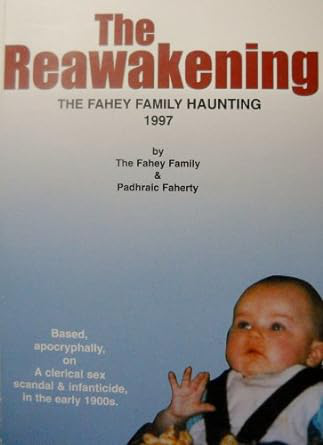US Citizen Deported After Irish Passport Fraud Using Dead Infants’ Identities
Bizarre/Strange
Yesterday
4 minute read.
A 73-year-old American man, Randolph Kirk Parker, has been deported to the United States following his conviction in Ireland for obtaining false passports using the identities of deceased infants. Parker, who had lived under multiple aliases in Ireland since the late 1980s, was sentenced to three and a half years in prison, with 15 months suspended, at Cork Circuit Criminal Court in April 2024.
Parker, originally from Michigan, pleaded guilty to four counts of providing false information to obtain Irish passports in the names of two children who had died in infancy, and one count of possessing a false Irish driving licence. He had been in custody since his arrest in September 2023.
He was released from Cork Prison on Thursday morning, having served the custodial portion of his sentence with remission for good behaviour. Gardaí escorted Parker to Dublin Airport, where he was deported on the basis of an order signed by Minister for Justice Jim O’Callaghan earlier in the year. He departed Ireland on an Aer Lingus flight to Chicago O’Hare International Airport, accompanied by officers from the Garda National Immigration Bureau. Upon arrival, he was expected to be handed over to US Immigration and Customs Enforcement (ICE).
The fraud was uncovered by the Irish Passport Services’ integrity unit through the use of facial recognition software. Officials identified a match between two recent passport applications submitted under the names "Geoffrey Warbrook" (addressed in Dublin) and "Philip Morris" (addressed in Dunbeacon, west Cork).
Both names corresponded to children who had died in infancy in 1952. When Parker appeared at the passport office in Cork to collect one of the documents, he was arrested by Detective Garda Pádraig Hanley and Detective Garda Joanne O’Sullivan.
During questioning, Parker refused to reveal his true identity. Further investigations with the help of Interpol and US intelligence services revealed that his fingerprints matched those of Randolph Kirk Parker, a US citizen who had entered Ireland through Shannon Airport in 1988 using a legitimate American passport.
Despite entering the country under his real name, Parker never used it again. Instead, he lived under at least one other alias, "Ray Travis", which he used to open bank accounts and conduct daily life in Ireland.
Parker was described by his solicitor, Frank Buttimer, as unusually composed throughout the legal process.
“He has a very calm demeanour. Nothing seemed to faze him,” said Mr Buttimer. “Arrest, charge and sentence, which he accepted without question and which he didn’t appeal. He is unquestionably one of the most unusual clients I have come across in my 40 years as a criminal defence lawyer.”
Parker was represented in court by barrister Brendan Kelly, who stated that his client had come to Europe on business in the late 1980s and experienced visa difficulties. According to Kelly, Parker was advised by a business associate on how to navigate the Irish passport system, which ultimately led to the identity fraud.
A graduate of Michigan State University with a degree in television and radio (1973), Parker reportedly lived in west Cork and Dublin for decades without attracting attention from authorities.
The use of deceased children's identities to obtain false documents has a precedent in covert operations. The infamous Venezuelan-born terrorist Ilich Ramírez Sánchez, known as “Carlos the Jackal,” is believed to have used similar methods, including harvesting names from graveyards, to forge documents during his time working with various militant organisations in the 1970s and 1980s.
The tactic, while crude by today’s standards, often proved effective in pre-digital eras. However, the increasing use of biometric technologies such as facial recognition and fingerprint matching has significantly tightened international security protocols in recent years.
Parker’s case highlights the lingering vulnerabilities in identity systems that can be exploited by those with patience, planning, and a willingness to exploit the identities of the deceased. It also underscores the evolving role of digital forensics in closing those loopholes.
Parker, originally from Michigan, pleaded guilty to four counts of providing false information to obtain Irish passports in the names of two children who had died in infancy, and one count of possessing a false Irish driving licence. He had been in custody since his arrest in September 2023.
He was released from Cork Prison on Thursday morning, having served the custodial portion of his sentence with remission for good behaviour. Gardaí escorted Parker to Dublin Airport, where he was deported on the basis of an order signed by Minister for Justice Jim O’Callaghan earlier in the year. He departed Ireland on an Aer Lingus flight to Chicago O’Hare International Airport, accompanied by officers from the Garda National Immigration Bureau. Upon arrival, he was expected to be handed over to US Immigration and Customs Enforcement (ICE).
The fraud was uncovered by the Irish Passport Services’ integrity unit through the use of facial recognition software. Officials identified a match between two recent passport applications submitted under the names "Geoffrey Warbrook" (addressed in Dublin) and "Philip Morris" (addressed in Dunbeacon, west Cork).
Both names corresponded to children who had died in infancy in 1952. When Parker appeared at the passport office in Cork to collect one of the documents, he was arrested by Detective Garda Pádraig Hanley and Detective Garda Joanne O’Sullivan.
During questioning, Parker refused to reveal his true identity. Further investigations with the help of Interpol and US intelligence services revealed that his fingerprints matched those of Randolph Kirk Parker, a US citizen who had entered Ireland through Shannon Airport in 1988 using a legitimate American passport.
Despite entering the country under his real name, Parker never used it again. Instead, he lived under at least one other alias, "Ray Travis", which he used to open bank accounts and conduct daily life in Ireland.
"One of the Most Unusual Clients"
Parker was described by his solicitor, Frank Buttimer, as unusually composed throughout the legal process.
“He has a very calm demeanour. Nothing seemed to faze him,” said Mr Buttimer. “Arrest, charge and sentence, which he accepted without question and which he didn’t appeal. He is unquestionably one of the most unusual clients I have come across in my 40 years as a criminal defence lawyer.”
Parker was represented in court by barrister Brendan Kelly, who stated that his client had come to Europe on business in the late 1980s and experienced visa difficulties. According to Kelly, Parker was advised by a business associate on how to navigate the Irish passport system, which ultimately led to the identity fraud.
A graduate of Michigan State University with a degree in television and radio (1973), Parker reportedly lived in west Cork and Dublin for decades without attracting attention from authorities.
The use of deceased children's identities to obtain false documents has a precedent in covert operations. The infamous Venezuelan-born terrorist Ilich Ramírez Sánchez, known as “Carlos the Jackal,” is believed to have used similar methods, including harvesting names from graveyards, to forge documents during his time working with various militant organisations in the 1970s and 1980s.
The tactic, while crude by today’s standards, often proved effective in pre-digital eras. However, the increasing use of biometric technologies such as facial recognition and fingerprint matching has significantly tightened international security protocols in recent years.
Parker’s case highlights the lingering vulnerabilities in identity systems that can be exploited by those with patience, planning, and a willingness to exploit the identities of the deceased. It also underscores the evolving role of digital forensics in closing those loopholes.



